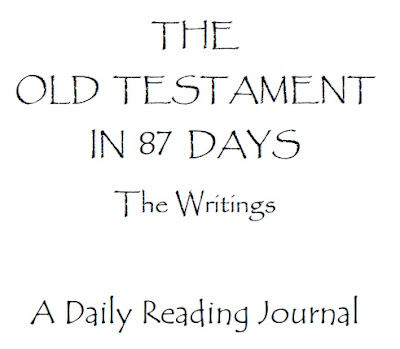Psalms is a collection of poetry and songs known as the sefer Tehillim in Hebrew. It is quoted 81 times by nearly every New Testament writers except James and Jude, more than any other Old Testament books!
What makes it stand out from the rest of the Bible is its literary style that engages the whole range of human emotions, and the consistent theme of praise and prayer that runs through its variety of authorships. David, the sweet psalmist of Israel, was the major contributor and collector of these songs, along with Asaph, the sons of Korah, Solomon, Moses, and two Ezrahites—Heman and Ethan. 47 psalms are by unknown authors.
Psalms is organized into five books, each ending in a doxology. While the topics vary widely, from instructional to ethical, from adoration to supplication, history and imprecatory, suffering and thanksgiving, ascent to acrostic, the center focus of each book is the fear of God as the Judge of the whole earth. Godly fear forms the breath that gives vitality to praise, and lends expression to man's relationship with God in every emotion of the human experience.
Some psalms contain superscriptions pointing to the historical background in which they were written; those employed in temple worship usually carry the phrase 'To the chief musician' and are sometimes accompanied by special musical terms such as 'alamoth', 'gittith', 'higgiaon', 'sheminith', etc. which likely refer to certain familiar tunes or some kind of instrument.
Christ is also prophesized in messianic psalms that spoke of his life and ministry, most notably Psalms 22 and 110 which are fulfilled, and Psalms 96-99 which awaits future fulfillment just as surely as He proclaimed:
40:7 Then said I, Lo, I come: in the volume of the book it is written of me…
OUTLINE OF PSALMS
1. The Book of the Messiah (1-41)
a. Mainly Davidic except four (1, 2, 10, 33)
b. Psalms about the Messiah
His Sonship (2)
His dominion (8)
His resurrection (16)
His suffering and death (22)
c. The Shepherd psalm (23)
d. Begins with 'Blessed is the man…' (1)
e. Ends with 'Blessed is the LORD…' (41)
2. The Book of Desire (42-72)
a. Half of these psalms are personal in nature
b. Eight psalms with historical background (51-52, 54, 56-57, 59-60, 63)
c. David's famous penitent psalm (51)
d. Begins with a deep longing for God (42)
e. Ends with the glory of God (72)
3. The Book of Israel (73-89)
a. God's dealing with Israel (74, 77-81, 83, 85, 87, 89)
b. Begins with 'Truly God is good to Israel…' (73)
c. Ends with 'Remember, LORD, the reproach of Your servants…' (89)
4. The Book of God's Reign (90-106)
a. Six great enthronement psalms (93, 95-99)
b. God's rule over our lives (90), the wicked (94), our frailty (103),
creation (104), Israel, her deliverance (105-106)
5. The Book of Praise (107-150)
a. Passover praise (hillel) psalms (113-118)
b. Greatness of God's Word (119)
c. Songs of degrees or ascent (120-134)
d. Son of David messianic psalm (110)













